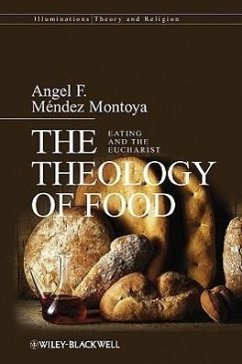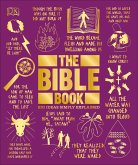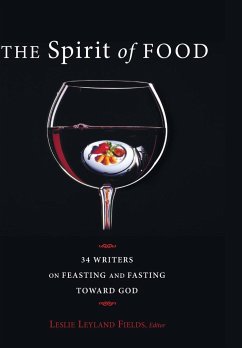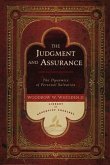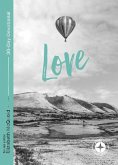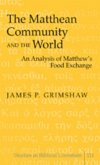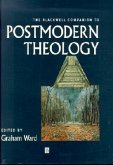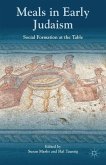The links between religion and food have been known for centuries. The Bible's story of the origins of humanity begins with the eating of fruit, and at the heart of Christianity - and acted out every Sunday - is the eating of bread which is miraculously transformed into the Body of Christ. For Islam, the eating and fasting around Ramadan are a key part of one of the most important spiritual events of the Muslim calendar, while the dietary laws of Judaism are designed to create awareness of living in the time and space of the Torah. Though we know these things, we rarely examine or fully understand the nature of the relationship between food and spirituality, or food and sin. This book takes seriously the idea that food matters and that eating and many of its aspects - table fellowship, culinary traditions, the relationship between tasting and knowing, and the aesthetic, ethical, and political dimensions of food - are important and complex, and throw light on the relationship between food and religion. Drawing on literature, anthropology, cultural studies, politics, and philosophy as well as theology, this book illuminates the role of food in religion and shows religion in a new and intriguing light.
"Nevertheless, this is an inspiring interpretation of thepossibility of reclaiming and reconnecting theology, food, and afuller eucharistic life." (The Theology ofFood, 1 October 2013)"For all its erudition, this book is more complex and valuable thana simple examination of Christian consumption. It offers richreflection on the prophetic and generous ways in which Christianitymight still disciple consumers who desire the superabundant gracemade material in the flesh of Jesus Christ." (TheologicalBook Review, 2011)
"This much-needed book takes seriously the Churches' uniquecontribution to understanding the importance of food."(Church Times, 11 February 2011)
"Montoya's book is a delight to read, and is a significantcontribution to the effort to apply theological thinking to theeveryday realities of embodied life." (Modern Theology,April 2010)
"It is a thought provoking and engaging work on the role of theEucharist in Christian life." (CHOICE, August2009)
"This book deserves to be widely read and, if you will forgivethe metaphor, digested." (Christian Century, June2010)
"[T]his is an inspiring interpretation of the possibilityof reclaiming and reconnecting theology, food, and a fullereucharistic life." (Interpretation: A Journal ofBible and Theology)"Eating and drinking feature in most religions, one way or another,and especially in Christianity, where the central act ofworshipping God is based on a meal, which also symbolizes thecommon life of the human race: this book unites Eucharistictheology and politics in an extremely original and yet deeplytraditional manner."
-Fergus Kerr, University of Edinburgh
"What does it mean to lead a Eucharistic life? What is therelationship between the Body of Christ and human bodies,particularly the bodies of marginalized persons? What are theaesthetic, ethical, and political dimensions of food aslocustheologicus? To address these questions, AngelMéndez Montoya draws on an extraordinary range of theological,philosophical, and narrative resources, thus providing us with awork as rich and delightful to savor as is the Mexican molliwhich is the culinary inspiration for Méndez's work."
-Roberto Goizueta, Boston College
"What a pleasure it is to be taken by Angel into such a subtlyCatholic imagination! Here is a universe where generosity andabundance are prior to lack and to hunger, and where the dualismsto which we have become accustomed in our anorexic theologicalthinking have no place. Here also is a fleshing out of thatgenerosity by means of concentrating our hearts and minds on whatit means to be fed and to eat. And along with that comes a strikingchallenge as to what sort of Eucharistic communities we are tocreate. Theologians, philosophers, novelists, and chefs are blendedtogether in this rich repast which brings to life, more than I canremember seeing anywhere, the true sense of Manna as fulfilled byJesus in John's Gospel."
-James Alison, Chicago
"This much-needed book takes seriously the Churches' uniquecontribution to understanding the importance of food."(Church Times, 11 February 2011)
"Montoya's book is a delight to read, and is a significantcontribution to the effort to apply theological thinking to theeveryday realities of embodied life." (Modern Theology,April 2010)
"It is a thought provoking and engaging work on the role of theEucharist in Christian life." (CHOICE, August2009)
"This book deserves to be widely read and, if you will forgivethe metaphor, digested." (Christian Century, June2010)
"[T]his is an inspiring interpretation of the possibilityof reclaiming and reconnecting theology, food, and a fullereucharistic life." (Interpretation: A Journal ofBible and Theology)"Eating and drinking feature in most religions, one way or another,and especially in Christianity, where the central act ofworshipping God is based on a meal, which also symbolizes thecommon life of the human race: this book unites Eucharistictheology and politics in an extremely original and yet deeplytraditional manner."
-Fergus Kerr, University of Edinburgh
"What does it mean to lead a Eucharistic life? What is therelationship between the Body of Christ and human bodies,particularly the bodies of marginalized persons? What are theaesthetic, ethical, and political dimensions of food aslocustheologicus? To address these questions, AngelMéndez Montoya draws on an extraordinary range of theological,philosophical, and narrative resources, thus providing us with awork as rich and delightful to savor as is the Mexican molliwhich is the culinary inspiration for Méndez's work."
-Roberto Goizueta, Boston College
"What a pleasure it is to be taken by Angel into such a subtlyCatholic imagination! Here is a universe where generosity andabundance are prior to lack and to hunger, and where the dualismsto which we have become accustomed in our anorexic theologicalthinking have no place. Here also is a fleshing out of thatgenerosity by means of concentrating our hearts and minds on whatit means to be fed and to eat. And along with that comes a strikingchallenge as to what sort of Eucharistic communities we are tocreate. Theologians, philosophers, novelists, and chefs are blendedtogether in this rich repast which brings to life, more than I canremember seeing anywhere, the true sense of Manna as fulfilled byJesus in John's Gospel."
-James Alison, Chicago

